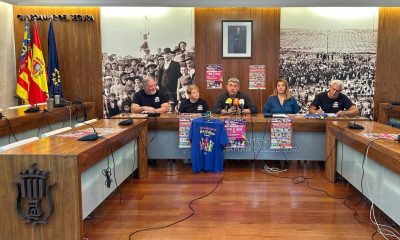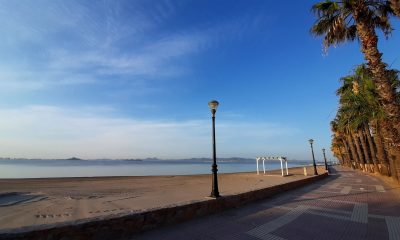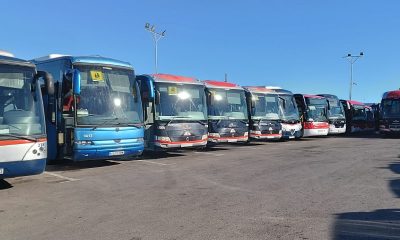Costa Blanca
Health department signs agreement with redundant Dénia medics
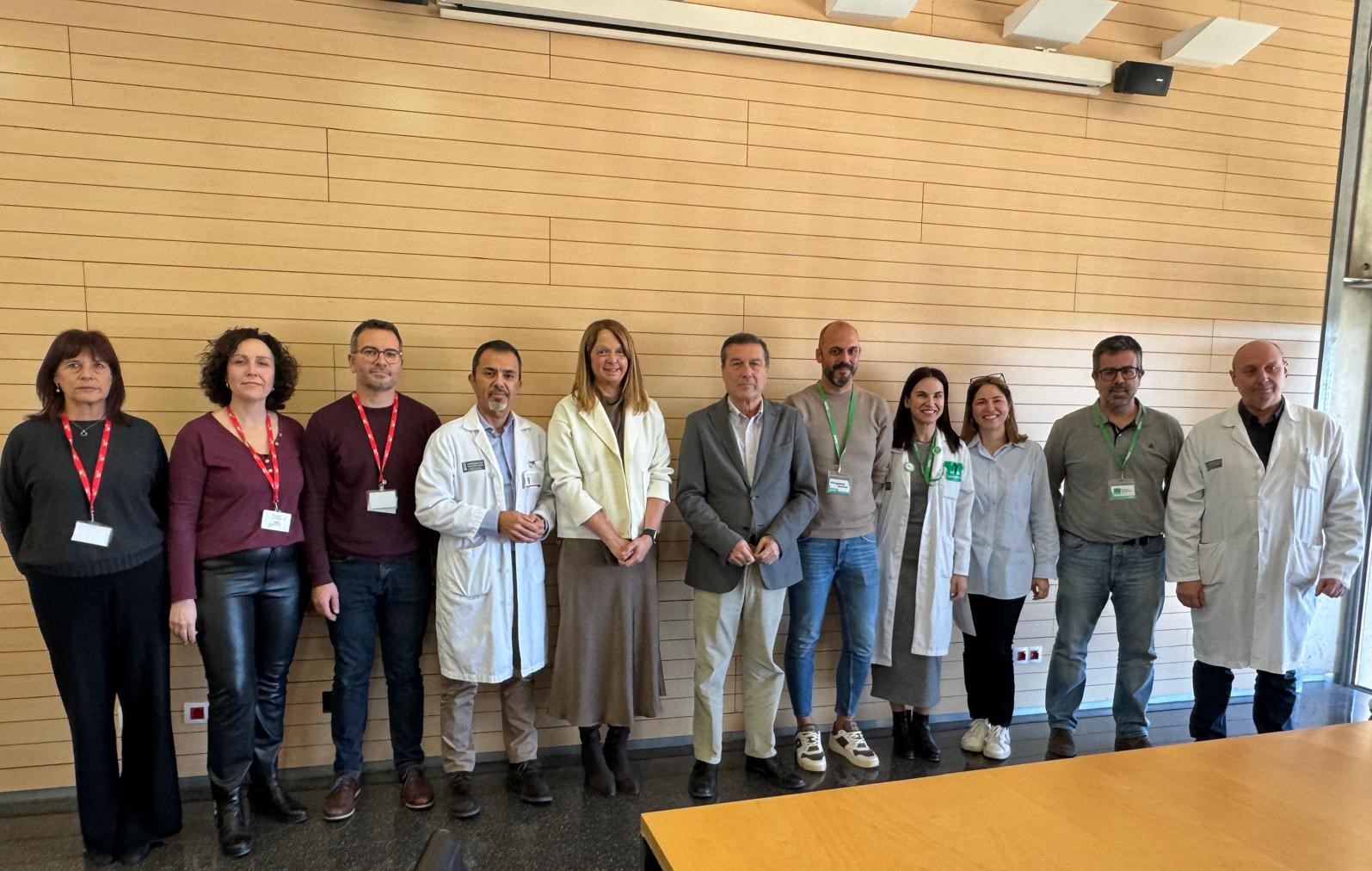
The Minister of Health, Marciano Gómez, signed the agreement of the Negotiating Committee of the 1st Collective Agreement for the redundant employees of the Department of Health of Dénia. This agreement will govern the working conditions of the redundant employees of the Department of Health of Dénia, subrogated by virtue of Decree 14/2024, of the Council.
This is a first step towards achieving the objective of the Ministry of Health that professionals in health departments that have moved to direct management and that have been subrogated, as is the case in Dénia, progressively have the same legal regime as the rest of public health personnel.
In this sense, the minister highlighted that it is a matter of working within a regulatory framework “to homogenize the legal regime of workers, rationalize and equalize their conditions in all areas of public health and, therefore, also for personnel who become part of the public health system after the change in management model”.
With this signature, an agreement has been formalized, on the one hand, to increase salaries from the date of subrogation of the staff, that is, February 1, 2024; on the other hand, a preliminary agreement on salary updates and other working conditions that will enter into force from the date on which the General Directorate of Budgets issues the prior and mandatory report relating to the measures that must take effect in the 2025 financial year.
Thus, the Ministry of Health will apply, with effect from the date of subrogation of the redundant staff of the Department of Dénia, February 1, 2024, an increase of 2.5% on their fixed remuneration recognized in their previous collective agreement, which will be consolidated for future years.
Salary update and other working conditions
Regarding the measures subject to the issuance of the prior and favourable report from the General Directorate of Budgets, these include the duration of working days, days of free time, measures in matters of equality and training, as well as the improvement of social benefits and the updating of remuneration.
In this sense, an annual working day of 1,676 hours is established for the day shift and night shift systems. The duration and regulation of the annual working day of the continuous care shift system (TAC) remains in force, established at 1,847 hours per year, and staff with a continuous care shift system (TDAC) will work an annual working day of 1,676 hours.
In addition, regarding the days of free disposal, workers will be able to enjoy 6 paid days of free disposal for each calendar year of effective work, each of which will be equivalent to 7 hours of working time.
Regarding training, the agreement states that workers with at least one year of recognized seniority are entitled to a paid leave of 28 hours per year for professional training for employment linked to the company’s activity, cumulative for periods of a maximum of five years, which will be applied under the same terms as currently.
The agreement also establishes the commitment of the Ministry of Health during the 2025 financial year to continue the negotiations of the First Collective Agreement for the terminated employees of the Department of Health of Dénia.
Discover more from Costa Blanca Daily
Subscribe to get the latest posts sent to your email.
Costa Blanca
Man arrested for robbery with force in Elche hospital and another for assault
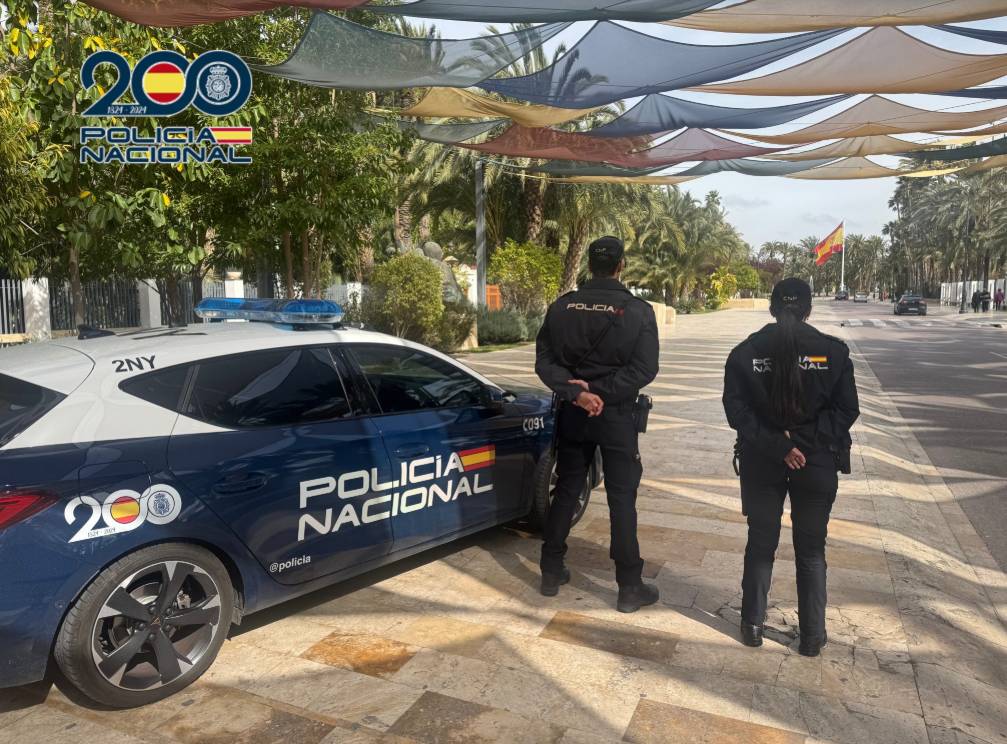
National Police officers have arrested a 43-year-old man for allegedly perpetrating a burglary within a hospital in Elche. The private security personnel were aware of the suspect, who had broken into 14 containers in various locations he had visited, and they notified the police.
Although the individual fled to a nearby neighbourhood, patrols promptly apprehended him. Among his possessions, they found a variety of medical supplies and instruments purportedly used to break into the lockers.
This individual was apprehended by officers for the purported offence of burglary, as determined by the information gained. Following the police investigation, the detainee appeared before the investigating court on duty.
Arrested for an attempted assault at a different facility in Elche
An incident of violence against medical staff occurred at another local hospital in the wake of an attempted assault by a 34-year-old man who had recently been discharged.
The private security team of the centre was compelled to promptly intervene in response to the attacker’s aggressive behaviour, thereby preventing the situation from escalating and causing additional harm.
The individual was promptly apprehended by a police detail, who identified him as the alleged perpetrator of a crime that involved the assault and damage of healthcare workers. They subsequently arrested him.
Discover more from Costa Blanca Daily
Subscribe to get the latest posts sent to your email.
Costa Blanca
FGV will allocate 1.4 million euros to cleaning the rolling stock and workshops of the Alicante TRAM
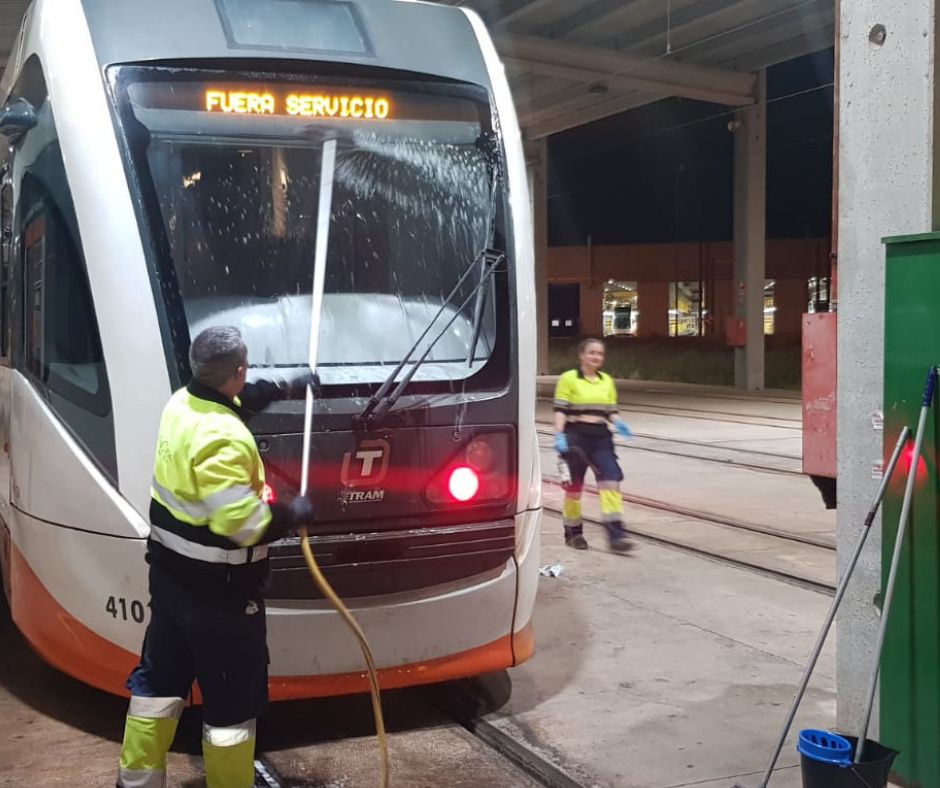
Ferrocarrils de la Generalitat Valenciana (FGV) will allocate €1,415,203.59 to clean the rolling stock and workshops of Alicante TRAM for a period of one year from the commencement of the contract, which also includes the possibility of an additional year’s extension.
The contracted services ensure the quality and frequency of the necessary cleanings, both daily and non-daily, as well as any unforeseen incidents or problems, such as graffiti or any other form of vandalism, by considering all the requirements associated with the cleaning of TRAM d’Alacant’s rolling stock and workshops.
At present, the rolling stock of TRAM d’Alacant comprises 37 units: 22 Bombardier 4200 series trams; 9 TRAM trains from the former Vossloh España company, which is now Stadler Rail Valencia; and 6 dual-drive (electro-diesel) trains from Stadler Rail Valencia, which are manufactured in Albuixech. These trains were retired after the modernisation work on Line 9 between Benidorm and Dénia was completed.
The 37 units for maintenance are housed in the three facilities that are currently available: El Campello, Benidorm, and Dénia.
Discover more from Costa Blanca Daily
Subscribe to get the latest posts sent to your email.
Costa Blanca
Police in Alicante train officers to patrol on motorcycles with greater safety and efficiency
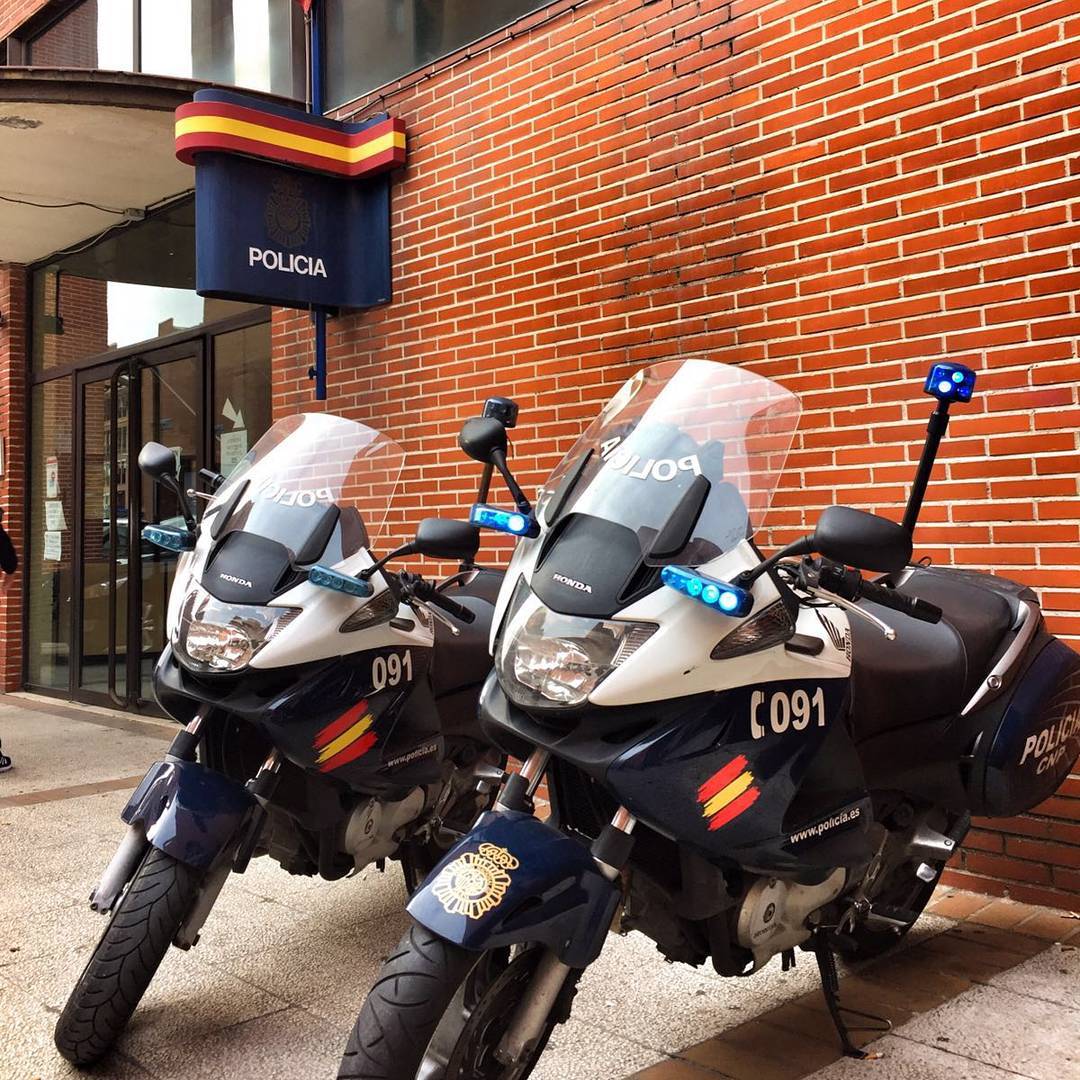
This week, nearly twenty agents from Alicante, Elche, Benidorm, Castellón, and Valencia have participated in a National Police course on motorcyclist safety specialisation.
The objective of the course developed in Alicante by the national police’s road training unit is to “ensure that all colleagues are safer and provide a more efficient service to the “citizenship,” according to officer Jose Manuel Paniagua, one of the four instructors from Madrid, Valencia, and Castellón who have taught the course.
The instructors have been instructing fifteen unit agents of prevention and reaction (UPR) on how to patrol more safely on their large-displacement motorcycles, which weigh between 160 and 200 kilogrammes each.
Paniagua has emphasised the importance of technical mastery of the vehicle in various scenarios, as well as visual planning and anticipation.
In order to achieve this, they have been conducting closed-circuit exercises on a track and on provincial roads with curved sections. Some of the exercises that are practiced in the course include emergency braking, changing direction and curve paths, getting on and off moving motorcycles and stops, and conducting low-level escorts while maintaining balance without putting your feet on the ground.
The instructor asserts that the course enables the participants to “improve the defects or vices they have when driving,” despite the fact that the majority of them are seasoned agents who provide service to the Alicante Motorcycle Groups and other cities in the province.
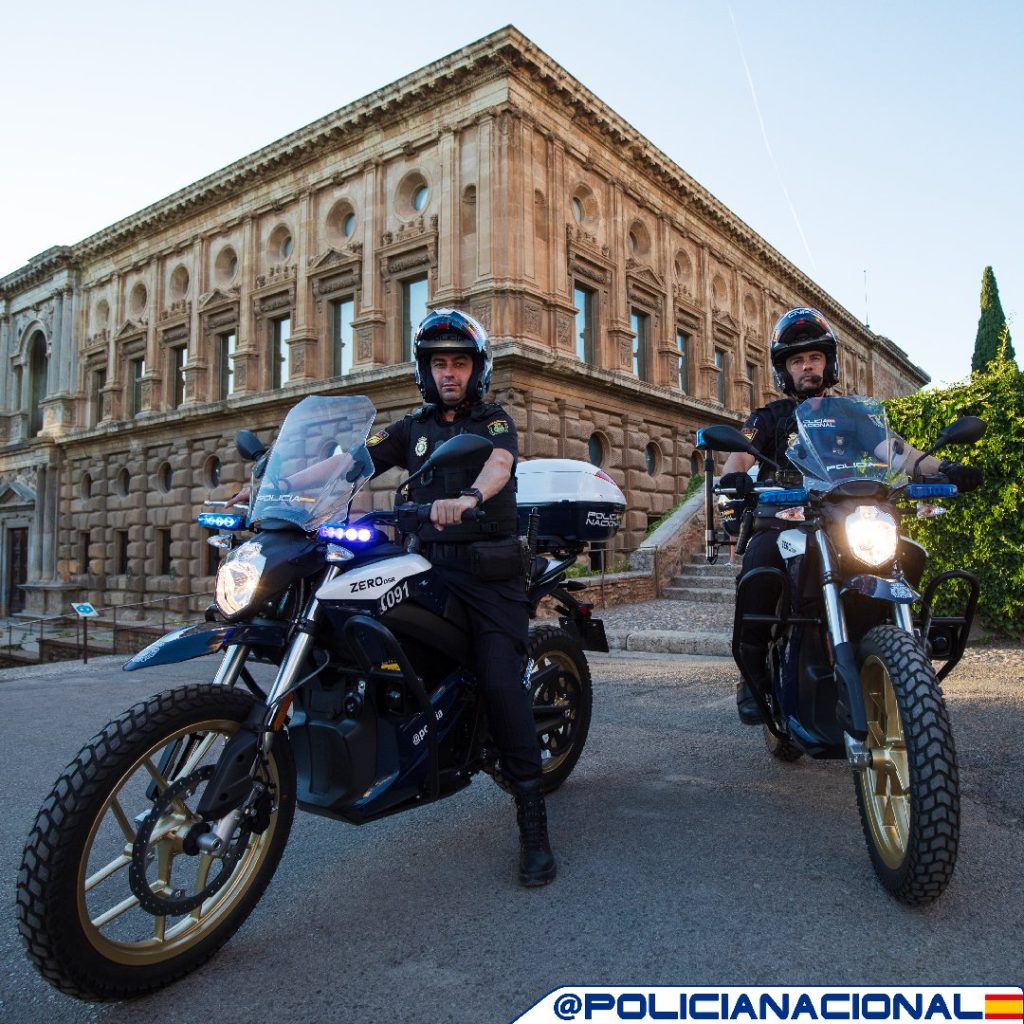
The course is derived from the English Driving Style, which has been embraced by numerous security forces and organisations worldwide. “It is a model that prioritises anticipation, security, and vehicle control, without compromising efficiency or reaction capacity,” explains Paniagua.
Instructors prioritise three fundamental aspects in their interactions with the agents: the agents’ feet and their position while driving, the use of brakes, and the gaze. The gaze is considered crucial for safety, as it provides the driver with anticipation.
Motorcycles enable the National Police to respond more promptly to emergencies; however, they also pose a greater risk to police officers. The objective of the course is to guarantee the safety of officers while they are serving and travelling. Consequently, the instructors emphasised to the police that they are unable to assist anyone if they do not arrive at the correct location.
The officer also concludes that the agents have been trained in the fundamental skills of stress management, decision-making under pressure, and reading the environment, which are necessary to intervene in actual scenarios without compromising the safety of oneself or others.
Discover more from Costa Blanca Daily
Subscribe to get the latest posts sent to your email.
-
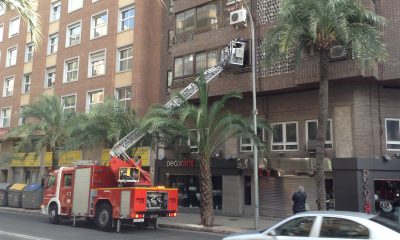
 Costa Blanca2 weeks ago
Costa Blanca2 weeks agoFire Consortium carried out 65 rescues and transported people to hospitals in the province of Alicante
-
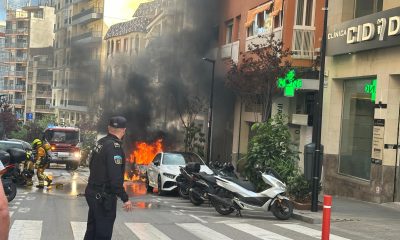
 Costa Blanca2 weeks ago
Costa Blanca2 weeks agoA municipal vehicle was engulfed in a terrifying fire in the heart of Calpe
-

 Costa Blanca2 weeks ago
Costa Blanca2 weeks agoResidents of El Mojón in Pilar de la Horadada will receive mail at their homes
-
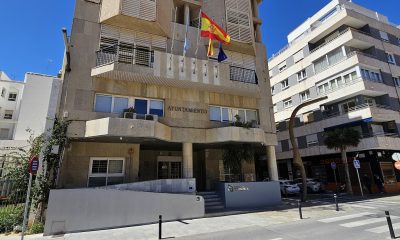
 Costa Blanca2 weeks ago
Costa Blanca2 weeks agoGreen light for drafting of park-and-ride parking project in Torrevieja
-

 Costa Blanca2 weeks ago
Costa Blanca2 weeks ago27 members of the Mara Salvatrucha gang arrested in Madrid, Barcelona, Tarragona, and Guardamar
-
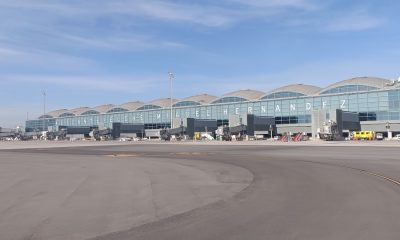
 Costa Blanca2 weeks ago
Costa Blanca2 weeks agoAena closed the first quarter of 2025 with a profit of 301.3 million euros
-

 Costa Blanca2 weeks ago
Costa Blanca2 weeks agoElche prohibits the sale and consumption of sunflower seeds to protect the Martínez Valero stadium
-

 Costa Blanca2 weeks ago
Costa Blanca2 weeks agoShock plan for the housing crisis in the Valencian Community

